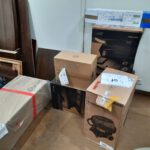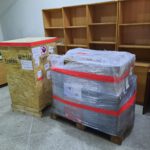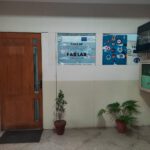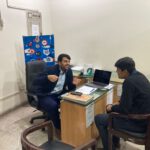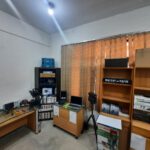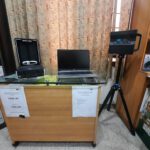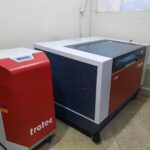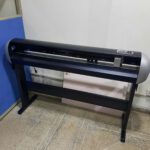Higher Education Institutions in Pakistan that struggle with funding, face serious difficulties to provide future entrepreneurs with adequate facilities and equipment to develop their ideas. Especially after the motivation phase where ideas have been developed, it is necessary for these young entrepreneurs to be guided through visualization and rapid prototyping to keep them invested in their ideas and see these come to light. On the other hand, many business ideas demand that there is a prototype available to better understand what inventors are trying to accomplish. For some IT-related ideas, these prototypes can be related to the first mock-ups of “apps” but could also be related to a demonstrator (using Arduino boards and Raspberry Pis). For other ideas, it might be necessary to develop 3D prototypes. Entrepreneurial coaches can play a crucial role in guiding students to rapid prototype development as it helps inventors to get a clearer thought on what their product could look like as well as include user feedback. Fab Labs are the perfect solution to these needs and are also very crucial to adding value to the coaching process. Workpackag-3 (WP3) of the TAKEUP Project provides a comprehensive framework for the establishment of Fab Labs in partner Pakistani Universities.
In this context, and as a significant development, COMSATS University has received FabLab equipment as part of the Erasmus+ TAKEUP Project. Mr. Sercan Çabuk (Technical Assistant from the University of Saarland Germany), Dr. Imran Hassan (COMSATS UNIVERSITY Fab lab Focal person), and Mr. Ghulam Jilani (TAKEUP Project Manager COMSATS University) have received the equipment in COMSATS University Lahore and under the guidance of Mr. Sercan, all the equipment and their operating software were installed. Mr. Sercan conducted an overall Orientation and introduction session about the equipment which was attended by relevant technical staff. The operating manuals for each piece of equipment are under preparation and after putting together all the protocols for the use of equipment, FabLab will be open for the students and faculty.
Fab Labs are considered an excellent and latest addition in academia that can be used to encourage hands-on learning and problem-solving skills among students. These are excellent platforms for the development of new products and technologies and support entrepreneurship and innovation. The practical-based learning environment in Fab Lab promotes networking, collaboration, and interdisciplinary learning and provides access to advanced technologies. The Fabrication Lab is not just a room filled with machines; it represents a doorway to a future where imagination knows no bounds and where ideas evolve into reality, making a way forward for innovation and creativity among entrepreneurs.



